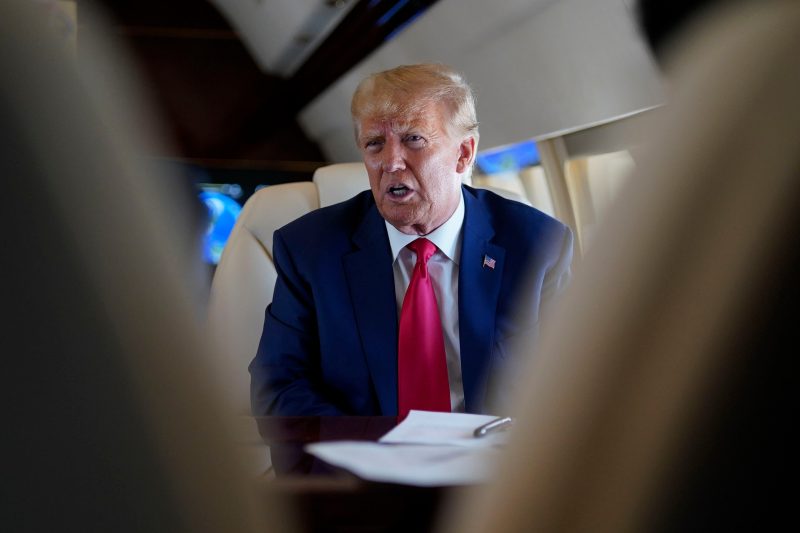The big finding from the new CBS News-YouGov survey is that Donald Trump has expanded his national lead in the Republican presidential primary to 46 points. That’s one of his largest margins to date.
But another finding has also caught plenty of people’s eyes. It’s that more Trump voters trust him than trust their own friends and family, conservative media or even religious leaders.
The percentages who say they trust each of the following to tell them what’s true breaks down like this:
Trump: 71 percentFriends and family: 63 percentConservative media figures: 56 percentReligious leaders: 42 percent
In one way, this finding is stunning, given that Trump’s presidency involved more than 30,000 false and misleading claims. Trump voters trust him even more than they do the people they know and love — what could be more emblematic of the informational bubble that exists around him?
But in other ways, the finding, which masks the low level of trust that Trump engenders overall, isn’t all that surprising.
The first thing to note is that these are the people who are voting for Trump. So it’s a self-selecting group. Of course lots of Trump voters say they trust him. When you take into account all GOP primary voters, however, the number drops substantially, to 53 percent. That’s less than the percentage who trust their friends and family, and it shows that a strong majority of non-Trump GOP voters mistrust him.
Which is something we’ve seen before. Polling has repeatedly shown that Americans overall and even many Republicans have a very low degree of trust in the Man of 30,000 Distortions.
In a recent Fox News survey, Americans said by a more than 2-to-1 margin, 67 percent to 31 percent, that the phrase “honest and trustworthy” doesn’t describe Trump. The level of trust in Trump even among his base is also relatively low. Fully 33 percent of those who voted for Trump in 2020, and 37 percent of Republicans overall, said he wasn’t honest and trustworthy. (A Washington Post-ABC News poll around the same time featured similar numbers.)
Even within Trump’s base of GOP primary voters, though, we shouldn’t be terribly surprised.
One reason is that supporters often place this level of trust in their chosen candidate. An Ipsos poll last year showed that more Democrats trusted President Biden (80 percent) than anyone except Anthony S. Fauci (84 percent) and their personal doctor or health-care provider (90 percent).
(Biden has his own problems with telling the truth, though nowhere near on the scale of Trump.)
Another reason we shouldn’t be surprised is that, while the poll is partially about faith in Trump personally, it also reflects what he’s being compared to.
Regular Gallup polling has shown Americans’ confidence in the church and organized religion falling to about half of where it was at the turn of the 21st century. Only 49 percent of Republicans now say they have at least “quite a lot” of confidence in that institution — similar to the 42 percent of GOP primary voters who say they trust religious leaders in the new poll.
An Ipsos poll earlier this year showed that just 45 percent of Americans had a “great deal” of trust in their friends. (It was higher — 61 percent — for family members.) So the idea that many Trump backers would mistrust even those close to them isn’t wholly surprising.
Finally, there’s the question of how Republicans feel about conservative media outlets. It’s perhaps not surprising that they distrust the mainstream media, but polling has shown they also have a healthy degree of skepticism about conservative outlets.
YouGov data from this spring actually showed more Democrats than Republicans trusted some conservative-leaning outlets, including the New York Post and National Review. Republicans’ trust in more Trump-friendly outlets like Fox News, Newsmax and One America News was also lower than Democrats’ faith in a whole slew of mainstream outlets.
So basically, Trump engenders more trust among his most devoted supporters than groups that enjoy only middling levels of trust in the conservative base.
Oh, and Trump’s level of trust from those devoted supporters? It’s actually not that great. That 71 percent is significantly lower than the 91 percent of “strong” Trump supporters — a slightly different but similar group — who said they trusted Trump for accurate information back in 2018.








